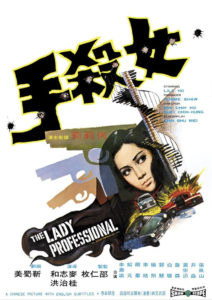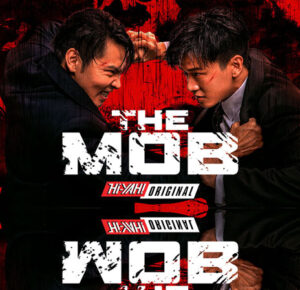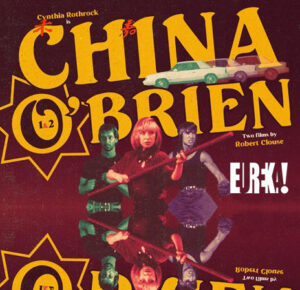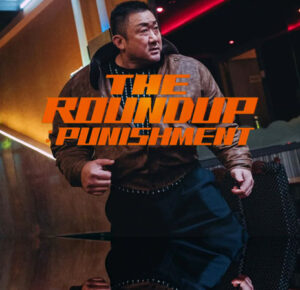
“The Lady Professional” Theatrical Poster
Director: Kuei Chih-Hung, Matsuo Akinori
Cast: Lily Ho Li Li, Cheung Pooi Saan, Cheng Miu, Wong Chung Shun, Chan Shen, Lee Sau Kei, Bolo Yeung Tze, Gai Yuen, Shikamura Yasuyoshi, Cheung Ging Boh, Joe Cheung Tung Cho, Gam Gwan, Gam Tin Chue, Hung Ling Ling, Lee Ho, Tsang Choh Lam, Yee Kwan
Running Time: 80 min.
By Joe909
Celestial’s choice of Shaw Brothers films to remaster for DVD release has so far proved rather haphazard; they’ve neglected several classics which fans figured would’ve been the first on the racks (I am of course referring to Five Element Ninja!!). But to look on the brighter side, the company has been revealing heretofore lost gems that prove Shaw Brothers was more than just a kung-fu flick factory.
Lady Professional is a movie most people had never heard of, prior to Celestial’s DVD release. It’s about as non-Shaw Brothers as you can get. In many ways, it’s your standard John Woo-type action movie about an assassin trying to get out of the game, except this movie was produced a good decade before Woo delved into the Heroic Bloodshed genre. The movie doesn’t feature gunblazing action sequences, instead relying on more covert-style murders and the occasional kung-fu fight.
The title is misleading. Lead actress Lily Ho isn’t really a Lady Professional, it’s more like she’s a “Lady who killed for revenge but then got coerced into killing for money.” In a backstory we discover that her father was murdered by thugs; Lily got vengeance for this, but was caught in the act by some smarmy ass, who began blackmailing her. In other words, only he knows she’s a killer, and so begins collecting cash from her each month to keep his mouth shut. This of course begs the question, why doesn’t Lily just kill this jerk too, but the topic is never discussed. Instead she just gives him money, working as a bartender in a club she owns. Or owned; it’s never really given much detail.
As it turns out, a bald-headed criminal has just been released from prison, and he’s wanted dead by a higher tier of criminals. After a botched attempt at killing him themselves, they decide to hire someone without a criminal past to do him in. The lecherous jackass who’s blackmailing Lily Ho happens to be involved with these guys, and recommends they use her as their assassin. She gradually accepts the job, and goes about it, taking the dude out in a bowling alley that must be chock full of knock-out babes. There’s one chick in a white miniskirt who has some of the best legs I’ve ever seen! Unfortunately, we never see her face.
Not so surprisingly, the crooks next try to kill Lily, instead of paying her as promised. That’s just how things go, I guess. What is surprising is the bloody revenge Lily gains. She guns guys down in cold blood, her cold expression never changing. Still looks damn sexy, though. The criminal bosses even bring in outside men to kill her, one of them being a bald, fake-scarred, muscle-shirt wearing Bolo Yeung. I must admit that the scene in which Lily fights these guys isn’t very believable, as Ms. Ho was obviously stunt doubled.
Anyway, through some coincidences that are hard to swallow, it turns out that Lily has a connection to the crooks, herself. That connection happens to be her chubby friend, who is of course dating one of them. Lily recruits her assistance in order to get her vengeance, though her handling of the main boss is anticlimactic, and the movie ends rather quickly. In fact, the end of the movie really sucks, as it seems tacked on: one of those “evil doing must be punished, regardless of the cause” type deals you would expect to see in a cartoon for challenged kids. No, she doesn’t die, but it would have come off better if she did.
Now it’s time for me to actually level a complaint against Celestial, but first I must descend into geek talk. For some reason, Celestial mastered their NTSC DVDs off of PAL. This means that, at times, their films run faster than normal. For example, the Celestial release of Invincible Shaolin runs 4 minutes faster than the bootleg release put out by NS here in the States, even though both movies contain the exact same footage. In other words, the Celestial release isn’t edited, it just runs fast. Sometimes this is noticeable; you’ll notice that characters in the background are moving a bit too fast.
I hate to be the bearer of bad news, but Lady Professional is the worst offender yet. Many of the scenes are so out of sync that it’s like you’re watching the Benny Hill Show. Characters move and walk around like the DVD is on fast forward. It’s very distracting, especially in a scene early in the film when a bunch of thugs try to run over Lily Ho’s bald-headed target. I’ve also read that some Celestial releases features 24 frames per minute, as opposed to the standard 25 frames. Why have they done this? If they’re going to the trouble of remastering these movies and making them look so good, couldn’t they at least correct the running speed?
As a final word, lead actress Lily Ho is gorgeous. I’m talking Nora Miao level. With her sultry looks and smoldering eyes, she looks great in the black garb she wears throughout. I wonder if Bruce Lee got to bone her. Hell, he probably did her AND Nora Miao. Damn that Bruce Lee! The bio on the DVD states that Lily was born in 1952, and retired from filmmaking in 1974. It also states that she gained fame by appearing “half naked” in the 1966 Chang Cheh movie Knight of Knights. Now, unless my math fails me, or that bio has her birth date wrong, that means Lily Ho was only 14 in 1966. Who knew the Shaw Brothers were into kiddie porn?
Joe909’s Rating: 7/10
By Mighty Peking Man
Lily Ho plays a gun-for-hire named Gi Tianli (aka Lady Professional), who is black-mailed out of retirement for one last job. Her target: a witness who has enough evidence to shut down the ruthless crime organization that hired her. However, the organization has other plans for her. They want to use her lethal expertise, then send her to hell as soon as she gets the job done. It’s a deadly game of cat and mouse, double-crossing and on-the-dot revenge. Will Gi Tianli get the guys that set her up, or will she be a victim of the organization?
The film opens with a amusing prelude that’s filmed in point-of-view/first person perspective; followed by catchy, bullet-ridden credit sequence featuring 007-esque music. After the credits, the first action scene literally made me cringe. It consisted of a shoot ’em up car chase that was poorly done, sloppily edited and worst of all, sped up to the point of laughter; and even for an early 70’s flick, it seemed goofy. At this point, I was kicking myself for taking a chance with a relatively unknown Shaw Brothers film directed by someone I wasn’t familiar with.
Little did I know, the film was on it’s way of fully redeeming itself.
If you can get past the bad “first impression”, you’ll be quite pleased with what’s to come: a tight, witty, entertaining flick; filled with psychedelic color, ultra-violence, and vivid villains; one of them, a very young, balled Bolo Yueng. The film sports wit, creativity; and no matter what, we can’t take our eyes off the gorgeous Lily Ho, who plays the cunning lady assassin. No matter how much I try, I always seem to relate to Kill Bill (which is a homage to universal trash cinema) when watching these kinds of films. It’s all there: quick zooms, bloody death scenes, serial-music, and ever stylish angle of the word “retro”. Curse Quentin Tarantino all you want for “stealing” from these films; but thank for giving us the mind to appreciate these kinds of films.
Like most of us, I’m always hesitant to pick up a Shaw Brothers flick when they’re practically unknown and not directed by Chang Cheh or Lau Ka-Leung; but a film like Lady Professional proves that taking a chance can be a rewarding experience.
Mighty Peking Man’s Rating: 7/10























Be the 1st to Comment